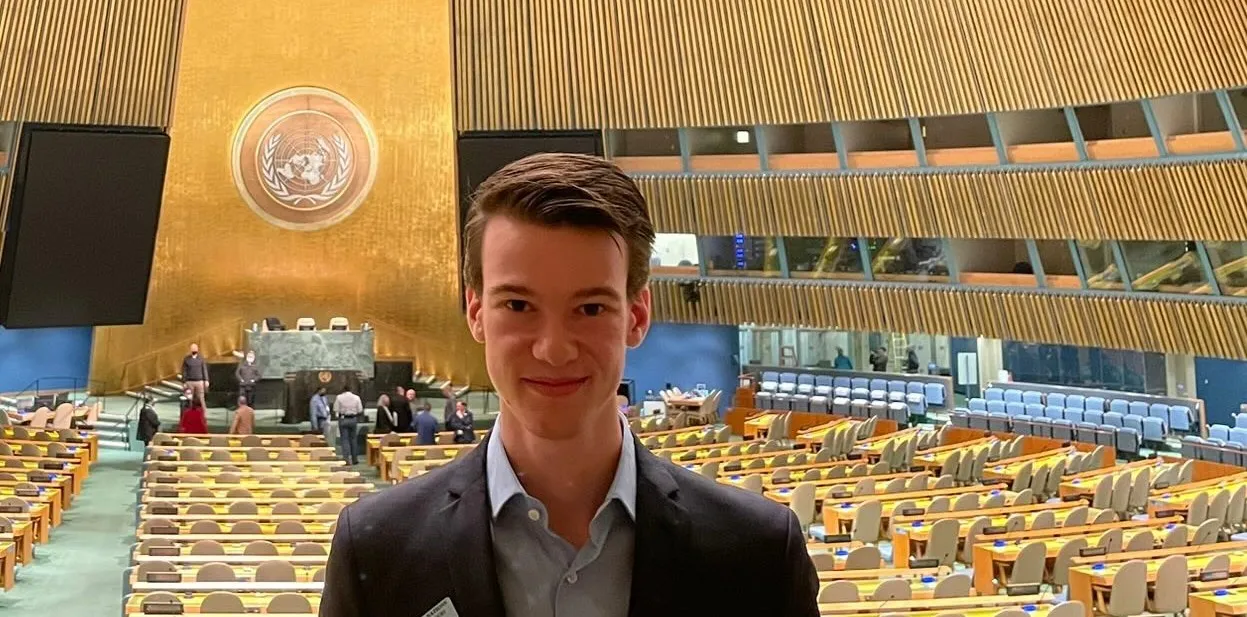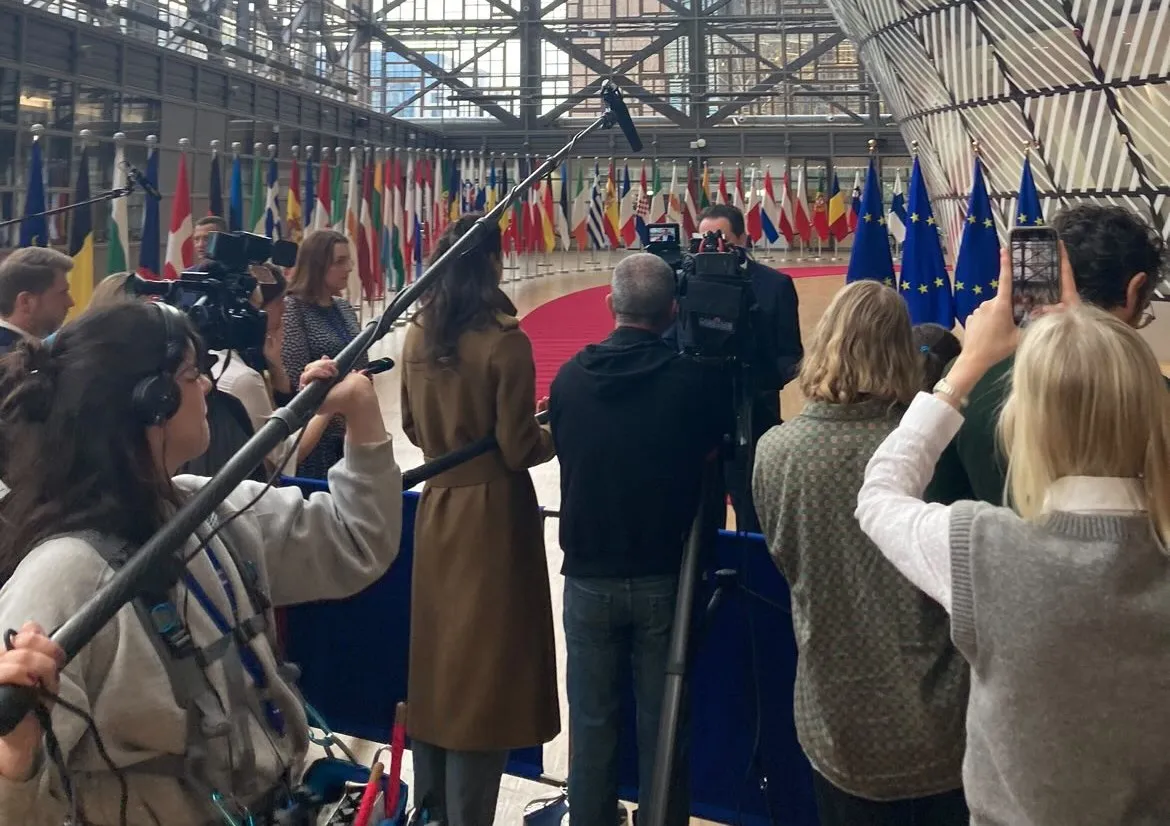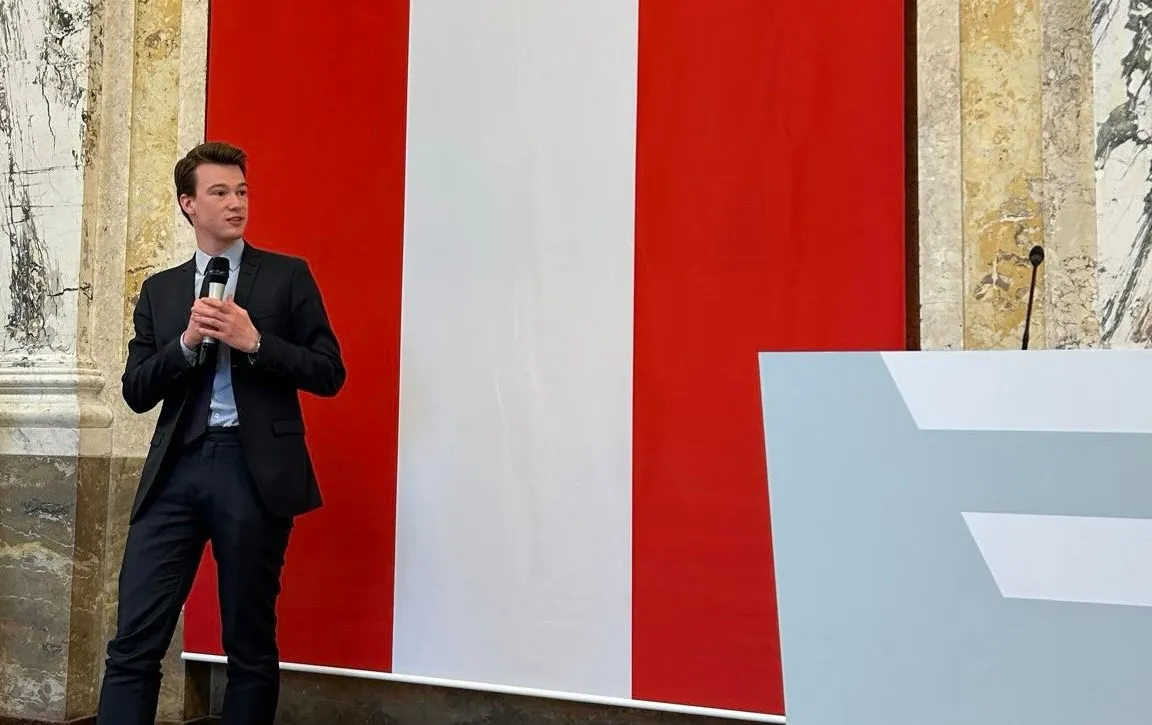"I sort of play MUN for a living at the moment."
MUN Stars - Matthias Kralupper

I want to work in the EU. I feel super jealous of Matthias, he literally gave me a tour of the Council before I had to rush off. Semi-retired at 23, living in Brussels and working at Austria’s Permanent Representation to the EU (yes, that’s real), Matthias is basically MUN personified.
“There’s zero chance I’d be here today without MUN,” he told me.
His journey started back in 2018, with Model European Parliament in high school. “MEP was all about expressing opinions. You just say what you want,” he laughed. In contrast, university MUN felt like an entirely different universe. “It’s more structured, more intense. More space for strategy. And so many unwritten (and written) rules.” That leap happened in 2021, at his first university-level conference in Madrid, hosted by IE. “I remember every second of it. It was one of those rare weeks that have truly changed my life, not just for my MUN journey, but for my personal development in ways I could have never expected. It taught me how to think on my feet, navigate social dynamics, and push myself beyond my comfort zone, learned the value of preparation, and discovered that persistence pays off even when you feel out of your depth. More importantly perhaps, I understood that I could go toe-to-toe with others that did the same as I did, which then helped me to continue pushing forward in the years after that”. He was the U.S. ambassador to the UK in a Cold War 1983 crisis. “I had no clue what I was doing. It was a great start, lol.”
Things escalated fast. Matthias is known for being overprepared and ruthlessly strategic. “I don’t think I’m a good speaker. I don’t go for big ideas. But I understand how committees work, I know how to get things passed.” In his opinion, he reached his peak as a delegate in Morocco 2022, when he represented Denmark in UNEP on Arctic pollution. “For a number of reasons, I went in with the absolute aim of winning it all, not winningsimply wasn’t an option at this conference. I absolutely delivered and had a great experience outside the committee, but the pressure I put on myself was intense. I’m mostly happy with how I did and proud of achieving my goal, but I think I could have enjoyed it more and still won.”
He has a word about each single committee. “Crisis is beautiful in many ways that regular committees aren´t. It’s chaos, but it’s creative chaos. You can break the mold. You’re never not thinking.” That said, he’s not into futuristic or gimmicky committees, and he has strong feelings about UNSC. “It’s overhyped. It becomes five delegates performing political theatre, and nothing gets done. I don’t get the appeal.” He prefers committees where people understand structure, where the ego drops and the content speaks.
As a chair, Matthias is all about communication and equality. “Your co-chair is your partner. You have to talk, about MUN, but also about life. You divide the work and the responsibility equally, plan for tie-breakers. You chair as a team or not at all.” For him, a study guide should add value: links, context….”Not stuff you can just google. They should help delegates prep smarter.”
MUN platforms? Don’t get him started. “mymun is fantastic. It gives structure, makes everything feel professional. When a conference uses it, it’s an instant level-up.” But MUN Command? That’s his favorite. “I encountered it in Madrid 2021 and I thought this is genius. You run entire committees through it. Notes, directives, everything! It makes you feel like you’re part of a real institution.”

Working in the Council of the EU is comparably quite underwhelming in some ways, he said. We all know that he is doing real policy and seeing the preparation for heads of state summits from the inside must be quite the thrill, but he explained to me that the pace and setup (a thing like a speakers list only exists for ministerial meetings; below that, you literally put up a physical placard like in the old days) feels almost gingerly at times, until it suddenly doesn´t.

“You spend one daytalking about a file, write your report, and then you don´t hear of it fortwo weeksin mostcases. But when a presidency decides they want something done, they start movingat the pace I had gotten used to at MUN. You know the tricks: forcing decision-making, holding multilaterals with power players, negotiating into the night to smoke out the resistance. Then you go to work the next day and realize that there are five other files you haven’t heard about in a month.”
Ask him for wild stories, and you'll get classic MUN chaos. Coastal buses in Morocco getting stopped by police (“I think the driver didn’t even have a license?”), delegate drama involving chairs and awards, and strange punishments involving questionable creativity. “I’m not the funny award type,” he insists. “The plot just needs to be served sometimes.”
At the end of the day, Matthias turned his hobby into something much bigger. “It’s kind of random how I got into MUN in the first place, I never planned for it to be more than a fun extracurricular. But somehow, that experience opened doors I didn’t even know existed. And then, almost naturally, MUN became the foundation for my current job. Working at Austria’s permanent representation to the EU? It’s basically MUN at a professional level. I really enjoy what I do, and politics fits me in a way science never did. Honestly, I don’t think I could ever do anything else.”
And finally, because we have to say it: No, the Council of Europe is not the European Council. And no, neither of them is the Council of the EU. But sometimes, in MUN, networks run deeper than your wifi on committee lunch breaks. One minute you’re in a committee with someone from Latvia, next thing you know, you’re standing in Brussels asking Matthias for a Council tour and rethinking your whole career plan. Are these institutions confusing? Absolutely. But hey, at least they’re not modelled after each other. Or are they?
 Beatriz Santos Mayo
Beatriz Santos Mayo